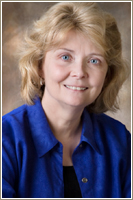By James Martin
America Magazine
July 21, 2011
http://www.americamagazine.org/blog/entry.cfm?blog_id=2&entry_id=4418
 |
When the new John Jay report came out in May--lauded in some quarters and lambasted in others--I remember thinking, "I wonder what Mary Gail Frawley-O'Dea thinks about it." Frawley-O'Dea, a psychologist and author, is one of the country's leading experts on child abuse, and was the only psychologist invited to address the historic 2002 meeting of the U.S. bishops in Dallas. Her book Treating the Adult Survivor of Childhood Sexual Abuse: A Psychoanalytic Perspective, co-authored in 1994, has become a classic text. In 2007, her book Perversion of Power: Sexual Abuse in the Catholic Church, was published; that same year co-edited volume, Predatory Priests, Silenced Victims: The Sexual Abuse Crisis and the Catholic Church, was also released (Full disclosure: that last book was the result of a conference on sex abuse, in which I delivered a paper that became a chapter in her edited book.) In short, she's as much of an expert on the topic of child sexual abuse as anyone can be. So her comments on the John Jay Report on the "Causes and Contexts" of the crisis need to be taken seriously. She offers her analysis at NCR. Some of her conclusions:
It is troublesome to me that [Lead investigator Karen] Terry and her colleagues failed to qualify the limitations of the report or sufficiently use qualifying language. Much, not all, of the John Jay source material was data self-reported by bishops, priests and church-operated treatment centers. Self-reports in research are regularly viewed with skepticism because there is no way to validate the accuracy of what is being surveyed. Since we know from grand jury reports and lawsuits that dioceses and provincial officers have been derelict in sharing all that they know about the history of abuse in their domains, Terry should have expressed the potential limitations of self-reported data -- in any research and particularly in this study.
What the John Jay researchers know about perpetrating priests is also conditional because officials can only supply the records of priests who have been accused. Too often, the research team uses assertive language about the number of abusive priests or the number of victims rather than qualifying these as accused or reported perpetrators and only victims who have come forward. While acknowledging that abuse is both underreported and reported years after the fact, Terry does not convey tentativeness about her findings. There are reasonable, literature-based extrapolations that can be made to conclude that the actual number of victims over 60 years is closer to at least 35,000 than 11,000 and that there are priests who perpetrated but were never accused. In addition, priests already accused may well have had more victims who have never come forward. Terry should have included statements about the significant likelihood that the number of reported victims and of reported perpetrators are both understated.
The same absence of qualification applies to the reportís discussion about recidivism. If many perpetrators are never reported, it is likely that many more are reported only once although they have offended again. When Terry talks about priests who have only one victim, she again should have qualified that with some discussion of probable understatement.
...
John Jayís assertion that the bishops failed to understand the scope of sexual abuse in the church or the damage it did to victims is not empirically supported in the report and simply is not credible. The Catholic church has had a sexual abuse problem with monks and priests since at least the Middle Ages and there have been numerous canonical and policy documents addressing the issue since then, often cautioning secrecy to protect the institution. In 1984, Dominican Fr. Thomas Doyle, Fr. Mike Peterson and Ray Mouton were scheduled to present their report to the bishops and were canceled by Boston Cardinal Bernard Law, suggesting an investment in not knowing what was available to be known.
Since Dallas, there have been more than a few reports of bishops keeping accused priests in ministry and, of course, the second Philadelphia Grand Jury Report details ecclesiastical mishandling of sexual abuse since 2002 that is all too familiar. Finally, if bishops really did not understand how terribly sacrilegious and devastating sexual abuse was, why did they work tirelessly to keep it secret? More than the average American man or woman, Catholic officials knew about sexual abuse and chose to protect the church and priests at the expense of souls entrusted to their care.
Any original material on these pages is copyright © BishopAccountability.org 2004. Reproduce freely with attribution.